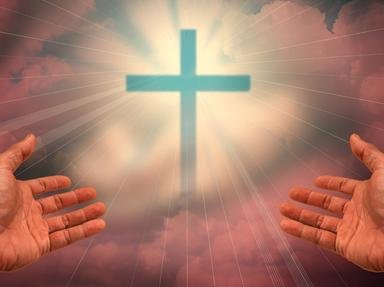Quiz Answer Key and Fun Facts
1. The prophet Ezekiel was commanded to take a particular action, in Ezekiel 2:l. What did God tell him to do?
2. There was once a king who gave his permission for his queen to write whatever she pleased. The king was Xerxes, and his wife was Esther. According to chapter 8 of the book of Esther, what specifically did the king give her a "blank check" (in a manner of speaking) to write about?
3. What did Jesus once use as an example to settle an argument amongst his disciples regarding which of them would be the greatest in the kingdom of God, according to Mark 9:33-37?
4. Why did King David state that he would not fear any evil, according to one of the most often quoted scriptures in the Bible, the 23rd Psalm?
5. In Leviticus 19:9-10, we see a passage that indicates how we should treat those less fortunate than ourselves. How are we instructed to treat our neighbors?
6. There are two body parts mentioned in Romans 10:8-10. By which of the parts of the body is salvation made available to mankind, according to Paul's writings to the early church of Rome, Italy?
7. According to the book of Hebrews in the New Testament, by whom or by what did God swear his blessings upon the ancient patriarch, Abraham? (Hebrews 6:13-14)
8. When King David died, where was he buried, according to 1 Kings 2:10?
9. According to Revelation 9:13-14, in which river of the world are there four angels bound, just waiting to be released to create havoc for mankind, authorized to kill a third of the world's population?
10. Oh, this one has probably been asked to death, and I'll just imagine that you think you know the answer to it, without even reading carefully.
WARNING: I am sometimes sneaky!
God prepared a great fish to swallow a man named Jonah, right?
Okay, so what ELSE did God prepare for Jonah, in the fourth chapter of the book of Jonah?
Source: Author
logcrawler
This quiz was reviewed by FunTrivia editor
CellarDoor before going online.
Any errors found in FunTrivia content are routinely corrected through our feedback system.
